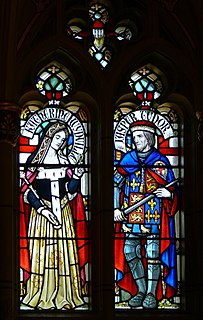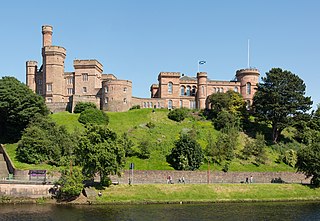| |||||
| Centuries: | |||||
|---|---|---|---|---|---|
| Decades: | |||||
| See also: | List of years in Scotland Timeline of Scottish history 1582 in: England • Elsewhere | ||||
Events from the year 1582 in the Kingdom of Scotland .
| |||||
| Centuries: | |||||
|---|---|---|---|---|---|
| Decades: | |||||
| See also: | List of years in Scotland Timeline of Scottish history 1582 in: England • Elsewhere | ||||
Events from the year 1582 in the Kingdom of Scotland .

Henry VII was King of England and Lord of Ireland from his seizure of the crown on 22 August 1485 until his death in 1509. He was the first monarch of the House of Tudor.
The 1540s decade ran from 1 January 1540, to 31 December 1549.

1582 (MDLXXXII) was a common year starting on Monday in the Julian calendar, and a common year starting on Friday of the Proleptic Gregorian calendar. However, this year also saw the beginning of the Gregorian calendar switch, when the papal bull known as Inter gravissimas introduced the Gregorian calendar, adopted by Spain, Portugal, the Polish–Lithuanian Commonwealth and most of present-day Italy from the start. In these countries, the year continued as normal until Thursday, October 4. However, the next day became Friday, October 15, in those countries. Other countries continued using the Julian calendar, switching calendars in later years, and the complete conversion of the Gregorian calendar was not entirely done until 1923.

The 1500s ran from January 1, 1500, to December 31, 1509.

Year 1506 (MDVI) was a common year starting on Thursday of the Julian calendar.

Year 1545 (MDXLV) was a common year starting on Thursday of the Julian calendar.

Year 1539 (MDXXXIX) was a common year starting on Wednesday of the Julian calendar.

Jasper Tudor, Duke of Bedford and Earl of Pembroke, also called Jasper of Hatfield, was the uncle of King Henry VII of England and a leading architect of his nephew's successful accession to the throne in 1485. He was from the noble Tudor family of Penmynydd in North Wales.
This article presents lists of the literary events and publications in 1582.
This article contains information about the literary events and publications of 1506.

George Buchanan was a Scottish historian and humanist scholar. According to historian Keith Brown, Buchanan was "the most profound intellectual sixteenth century Scotland produced." His ideology of resistance to royal usurpation gained widespread acceptance during the Scottish Reformation. Brown says the ease with which King James VII was deposed in 1689 shows the power of Buchananite ideas.

Murdoch Stewart, Duke of Albany was a leading Scottish nobleman, the son of Robert Stewart, Duke of Albany, and the grandson of King Robert II of Scotland, who founded the Stewart dynasty. In 1389, he became Justiciar North of the Forth. In 1402, he was captured at the Battle of Homildon Hill and would spend 12 years in captivity in England.

Inverness Castle sits on a cliff overlooking the River Ness in Inverness, Scotland. The red sandstone structure, displaying an early castellated style, is the work of a few 19th-century architects. William Burn (1789–1870) designed the Sheriff Court, Joseph Mitchell (1803–1883) the bastioned enclosing walls, and Thomas Brown II the District Court, originally built as a prison. It is built on the site of an 11th-century defensive structure. Until 30 March 2020, it housed Inverness Sheriff Court: this has now been moved to the Inverness Justice Centre.

Sir James Hamilton of Finnart was a Scottish nobleman and architect, the illegitimate son of James Hamilton, 1st Earl of Arran, and Marion Boyd of Bonshaw. Although legitimated in 1512 while still a minor, he continued to be known as the "Bastard of Arran". As a key member of the Hamilton family, and second cousin of James V, King of Scotland, he became a prominent member of Scottish society.

Peter Hume Brown, FBA was a Scottish historian and professor who played an important part in establishing Scottish history as a significant academic discipline. As well as teaching and writing, he spent 16 years as editor of the Register of the Privy Council of Scotland, and served as Historiographer Royal.
Events from the 1500s in England.
Events from the 1540s in England.
Events from the 1560s in England.

Robert Sutherland, was the 6th Earl of Sutherland and chief of the Clan Sutherland, a Scottish clan of the Scottish Highlands.
Events from the year 1579 in the Kingdom of Scotland.